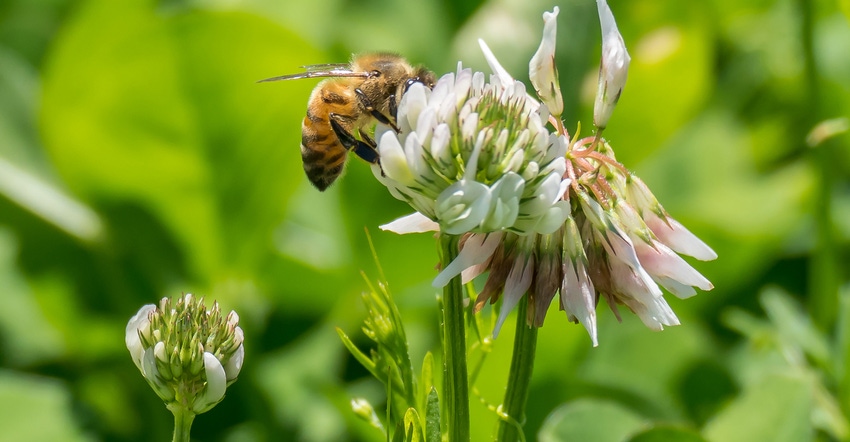January 30, 2017

Extreme environmental groups kept the internet busy with emails flying everywhere as President Donald Trump named one cabinet nominee after another. More than a few drew the ire of those who appear to be on the far left.
We’re not talking about groups that truly put their money where their voices are, and that have reasonable environmental protection at heart. The Nature Conservancy, for example, came alongside farmers in northwest Ohio and northeast Indiana to help find solutions to environmental problems causing algal blooms in Lake Erie. Farmers appreciate those efforts.
On the other hand, Friends of the Earth opposed every cabinet nominee who had anything to do with the environment. That’s because the nominees were people with track records of balanced environmental stewardship, not radical protection of the environment at any cost.
Every news release issued by Friends of the Earth includes a virtual yellow “donate” button.
Back to bees
With the political arena settling down, Friends of the Earth has returned to a favorite target: large chemical companies. In particular, the group has attacked Bayer, maker of nicotinoid insecticides, often applied as seed coatings in both corn and soybeans to protect against early-season insects. There are no rescue treatments for some insects, including wireworms and seed corn maggots. Either control them in advance, or live with the damage if they appear. There are other choices for control besides seed treatments, including soil-applied insecticides.
Extreme and even some not-so-extreme environmental groups have made the case that when these seed-coated insecticides attach to talc or other materials used to help seed flow through planters better, they can wind up in the air, especially if the farmer uses an air planter. Even some university entomologists insist this is causing problems for bees.
What is usually lost in these discussions is room for compromise or balance — weighing the risk of injury to bees against the risk of lost crop production by insects if these products aren’t applied.
Chemical companies have done a good job of educating farmers and beekeepers alike. Practices such as shutting off the planter on ends and being careful when emptying seed boxes, all aimed at reducing potential release of dust particles potentially carrying insecticide, have been explained and, in many cases, implemented by farmers
Real goal
Instead of talking about these improvements, when Friends of the Earth issues a news release about bees, you can almost bet you’ll find the phrase “Bayer the Bee Slayer” in the lead paragraph. Does that sound like a group looking for real solutions and compromise?
Or maybe it sounds like a group playing on people’s emotions. Don’t forget that the yellow “donate” button is ever-present. Sometimes the group asks for $5. Recently, in a release issued just before the end of 2016, it asked for $15, and promised that a tax-deductible donation would be matched dollar for dollar.
All this begs the question: Is the real purpose protecting the environment? Or is it raising money for the sake of raising money?
There are real answers out there. Reasonable people can find compromises. It’s time environmental groups on the fringe decide what they truly want to accomplish.
You May Also Like




